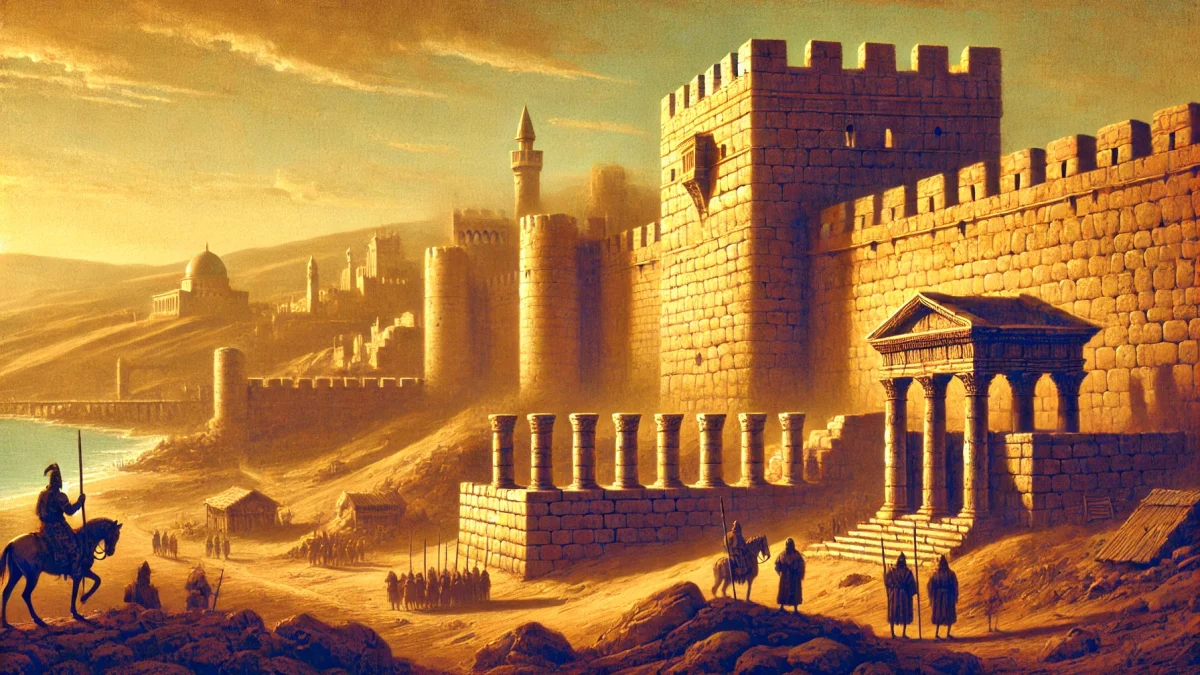The city of Gaza, also called Azzah in the Bible, holds significant historical and spiritual meaning throughout Scripture. First mentioned in the book of Genesis as part of the Canaanite land (Genesis 10:15–191), Gaza was strategically located on the border between Israel and Egypt, near the Mediterranean Sea. Known as one of the world’s oldest cities, Gaza’s name means “strong,” reflecting its reputation for being heavily fortified and difficult to conquer.
Gaza and the Philistines
Gaza is often associated with the Philistines, a powerful and longstanding enemy of Israel. Originally, a group called the Avvites lived in Gaza, but they were displaced by the Caphtorites, who later became known as the Philistines (Deuteronomy 2:232). These Philistines came from a coastal region, likely Crete, and were known for their military strength (Jeremiah 47:4).
The tribe of Judah initially inherited Gaza during the conquest led by Joshua (Joshua 10:41), but they couldn’t hold it for long. By the time of the Judges, Gaza was firmly in Philistine hands, and it became a place of conflict between the Israelites and the Philistines. One notable story involving Gaza is when Samson visited the city and narrowly escaped an assassination plot by the Philistines, even managing to carry off Gaza’s city gates (Judges 16:1–3). Eventually, Samson was captured and taken back to Gaza, where he destroyed the temple of Dagon in his final act, bringing judgment on many Philistines (Judges 16:23–303).
Gaza: A City of Judgment
Gaza’s history in the Bible is marked by prophecy and judgment. Prophets like Amos, Jeremiah, Zephaniah, and Zechariah all foretold Gaza’s downfall because of the Philistines’ continued disobedience to God. Amos 1:6–7 specifically says, “For three transgressions of Gaza, and for four, I will not revoke the punishment…” God promised to send fire on Gaza, symbolizing His judgment for their mistreatment of His people.
Over time, foreign powers, including Assyria under King Sargon and later Alexander the Great, conquered and destroyed Gaza. Despite these judgments, Gaza remained a prominent city, and God’s purposes continued to unfold there.
Gaza in the Spread of the Gospel
Interestingly, the New Testament briefly mentions Gaza in a very different light. In Acts 8:26–39, an angel directed Philip the evangelist to the road leading to Gaza, where he met an Ethiopian eunuch. This encounter led to the Ethiopian’s conversion and baptism, marking a significant moment in the spread of the gospel. In this instance, a city that had once stood against God’s people became a place where the good news was shared, signifying transformation and hope.
The Legacy of Gaza
Gaza serves as a powerful reminder of God’s justice, patience, and mercy. Despite its frequent association with conflict and judgment, Gaza ultimately becomes a point on the map of God’s redemptive story. Though the Israelites struggled to conquer it fully, and the Philistines caused them great trouble, God’s purposes continued to prevail.
The story of Gaza reminds us of the importance of obedience to God and the reality of His judgment against persistent sin. At the same time, it shows us His willingness to use all places—even those with a dark history—as stages for His grace and redemption.
Refs






Leave a Reply